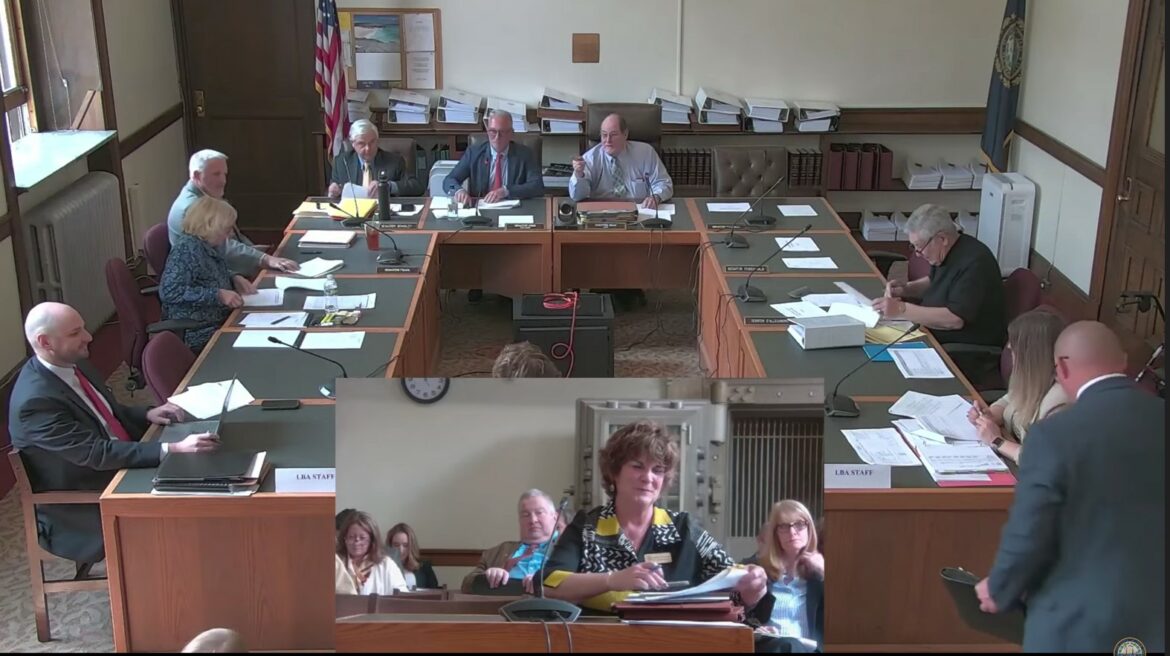By GARRY RAYNO, InDepthNH.org
CONCORD — The Senate Finance Committee reduced the University System of New Hampshire’s appropriation for the next biennium by $6.4 million in its meeting Tuesday.
The committee also reduced the budget for the Community College System of New Hampshire as it works on its proposed two-year operating budget for the next biennium.
The House passed a $16 billion biennial budget plan to the Senate, which has been working on its own plan for several weeks.
During Tuesday’s meeting, the majority of the committee decided to reduce the University System’s state contribution by $200,000 in fiscal 2024, and by $6.2 million in fiscal 2025, for a new total of $190 million over the biennium. The university system received $177 million over the current biennium.
The university system requested a budget of $199.4 million, and the House approved $196.4 million over the two years.
Both Sen. Dan Innis, R-Bradford, and Lou D’Allesandro, D-Manchester, urged greater state support for the system.
Innis said the system’s institutions keep young people in New Hampshire, and have an enormous economic impact on the state by bringing in hundreds of millions of federal money.
He said while the proposal may be enough money, he would like to see more state support.
D’Allesandro said the university system has been strained over the years as the state has reduced its percentage of help and at the same time asked the system to keep tuition level.
He said the university system has been restructured, has sought additional federal funding, and has used its own money to renovate buildings on campuses.
“We have got to pay attention to what the students who go there contribute to this state,” D’Allesandro said, noting “I am a product of university. It was the best four years of my life.”
He said the university represents opportunity for the young people of this state, and if “we deny that opportunity because of cost, we have a real problem.”
He said lawmakers are talking about building a new $400 million state prison for 2,000 inmates, and a new psychiatric hospital for $40 million to $60 million.
“There are a lot of demands,” D’Allesandro said, “but the thing that makes us all equal is educational opportunity.”
But the committee approved the reduction on a voice vote with several voting no.
Community College System of New Hampshire
The Finance Committee decided to reduce the funding for the dual and concurrent program which allows high school students to take college courses.
The House had approved $3.25 million each year, while Senate Finance approved $2.5 million a year, which Senate President Jeb Bradley, R-Wolfeboro, said was enough to cover current enrollment.
Chancellor Mark Rubinstein said while the system was grateful for the increase, a greater investment in the program will help families by making higher education more affordable.
He said the program targets two streams, one for students with significant financial needs, and middle class families who would have to use education loans for their children’s education.
He said most students take one or two courses which do not have a major impact on costs, but if a bill creating a more direct path between the community college and university systems is approved, it will become a more affordable pathway for students.
And he said that would make it more likely the students will remain in New Hampshire and contribute long term to the workforce.
D’Allesandro said the question is when the state’s generosity is at a level to make a greater impact.
He noted Manchester has eight minority schools and one high school that is a minority school and those are the kids that take advantage of the program and they are the ones who will be hurt.
“If you shut off the opportunity,” he said, “that eliminates their ability to advance, to get ahead.”
The reduction was approved on a voice vote.
The committee also cut in half the New Hampshire Promise Program intended to help families who would otherwise not be able to afford higher education.
State funding was reduced from $6 million to $3 million over the two-year biennium.
Rubinstein said several neighboring states have similar programs and he wants to see New Hampshire be able to compete.
The committee also approved using $1 million in surplus funds from this fiscal year for a recruitment and retention program for law enforcement, firefighters and emergency medical technicians.
Fish and Game
The committee put off a decision whether to use state general funds to pay for a 12 percent state employee pay raise over the biennium for Fish and Game personnel.
The department’s executive director, Scott Mason, had asked to make the change from Fish and Game funds to the general fund. The pay increase for the agency will be a little more than $2 million over the biennium.
The committee chair, Sen. James Gray, R-Rochester, said he would hold the item for an amendment that would allow the agency to go to the Fiscal Committee in the future and ask for the funding.
A similar amendment is likely for a request to pay for four employees currently working on alteration of terrain permits needed for construction that concern endangered species.
The committee put off action until the agency determines how much state money is needed for the four employees after the federal American Rescue Plan Act money currently paying for the four positions ends December 2024.
And the committee approved an amendment to require the agency to set up on-line registration and renewal payments for off-highway vehicles and snowmobiles by Sept. 1, 2025.
The committee is slated to meet again at 10 a.m. Friday to tentatively take up requests from the Treasury Department, the state retirement system, the Department of Revenue Administration, the Department of Natural and Cultural Resources, the New Hampshire Hospital and Glencliff Home.
The deadline for the Senate to act on the two budget bills is June 8.
Garry Rayno may be reached at garry.rayno@yahoo.com.





